Do I need to ground my washing machine?
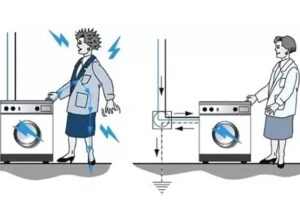 To the question of whether it is necessary to ground a washing machine, manufacturers and electricians answered a long time ago and clearly - “yes.” It is prohibited to operate the machine without appropriate protection, especially in wet rooms, otherwise it is easy to get an electric shock or fire. Warning signs will be tingling of the fingers when unloading the drum or tingling when touching the body. Pulling in such situations is dangerous - the equipment is under tension. It is necessary to diagnose the machine and provide it with high-quality grounding.
To the question of whether it is necessary to ground a washing machine, manufacturers and electricians answered a long time ago and clearly - “yes.” It is prohibited to operate the machine without appropriate protection, especially in wet rooms, otherwise it is easy to get an electric shock or fire. Warning signs will be tingling of the fingers when unloading the drum or tingling when touching the body. Pulling in such situations is dangerous - the equipment is under tension. It is necessary to diagnose the machine and provide it with high-quality grounding.
In an apartment building
There is a misconception that only old household appliances with ill-conceived insulation need grounding. In reality, this is not the case - all large electrical equipment must be grounded. Even modern washing machines provide a potential of 110V on the metal elements of the body. It's all about the interference reduction network filter that all machines are equipped with. FPS involves connecting phase and zero to the walls of the unit, which in the event of a leak is dangerous for the user. If the washer frequently shocks, the cause is often the capacitor. In this case, the problem is solved by turning off the output of the midpoint of the FPS in the supply circuit of the machine. Then the electricity will stop flowing to the housing.
Running a washing machine in the bathroom without grounding is dangerous!
Even better is to provide high-quality grounding. Properly installed wiring in an apartment must comply with the following standards:
- the shield has a neutral and grounding busbar (marked N and PE, respectively);
- the phase conductor (red) passes through an RCD before exiting the panel;
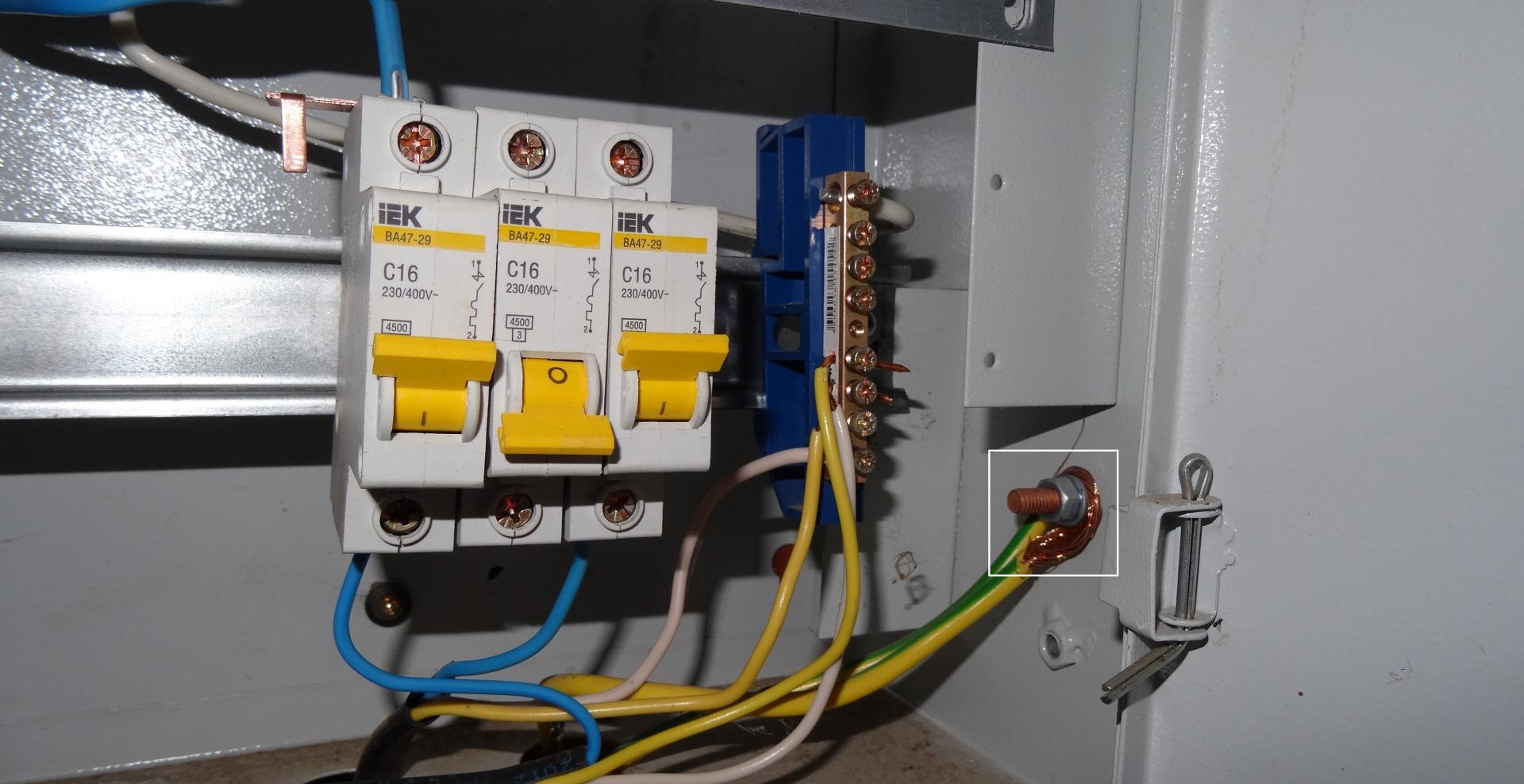
- the washing machine is connected through a separate outlet;
- the power line under the machine is laid with a copper wire with a cross-section of 1 mm for every 2 kW of machine power;
- the wiring in the socket is connected in a certain way (the blue wire zero marked N and the phase (L, red) are connected to the pins, and the green grounding PE is connected to the contact plate).
According to safety regulations, running a washing machine without grounding in a bathroom or other room with high humidity is prohibited. Moreover, operation in the so-called “wet zone” requires connection only through a moisture-resistant outlet. So, the electrical point must have a degree of protection of at least IP44, ideally higher.
Private home ownership
In a private house, grounding is organized in a different way from an apartment. It is necessary to lay a three-core cable from the panel to the socket using the TN-C-S system. Another option is to equip all electrical wiring branches with an RCD with a setting of 10-30 mA. Sometimes electrical communications are established according to Soviet TN-C standards, in which the network cable provides only two wires - phase and zero. In this case, it is necessary to install the grounding wire separately, connecting it to the PE bus. It is more troublesome and less aesthetically pleasing, but it is reliable and safe.
You can find out about the presence of grounding with a simple test. It is enough to turn the multimeter into ohmmeter mode, hold one probe in your hand, and apply the second to the metal part of the washing machine body. Then we evaluate the result. If “0” is displayed on the display, it means that the machine is grounded. When numbers of 100-110V are displayed, we draw the opposite conclusion - there is no protection against current leakage. In the latter case, it is necessary to organize communication with the “ground” on your own.
Making grounding
If there is no “central” grounding, as well as the corresponding busbar in the electrical panel, then you can protect yourself in another way. We are talking about supplying “earth” from a homemade device. You can assemble the latter with your own hands, the main thing is to find materials and a free place for burying it. In order for the current to flow from the washing machine into the ground, it is necessary to ensure its spreading in the ground. To do this, a metal contour is buried a meter from the wall of the house on the wettest side. Thus, you can “extinguish” about 30 Ohms. The instructions are as follows:
- dig a trench in the shape of an equilateral triangle, where each side is 3 m (other parameters of the hole: depth - 1 m and width - 50-70 cm);
- dig a ditch 0.8-1 m deep from the triangular trench to the electrical panel (a wire will be laid in it);
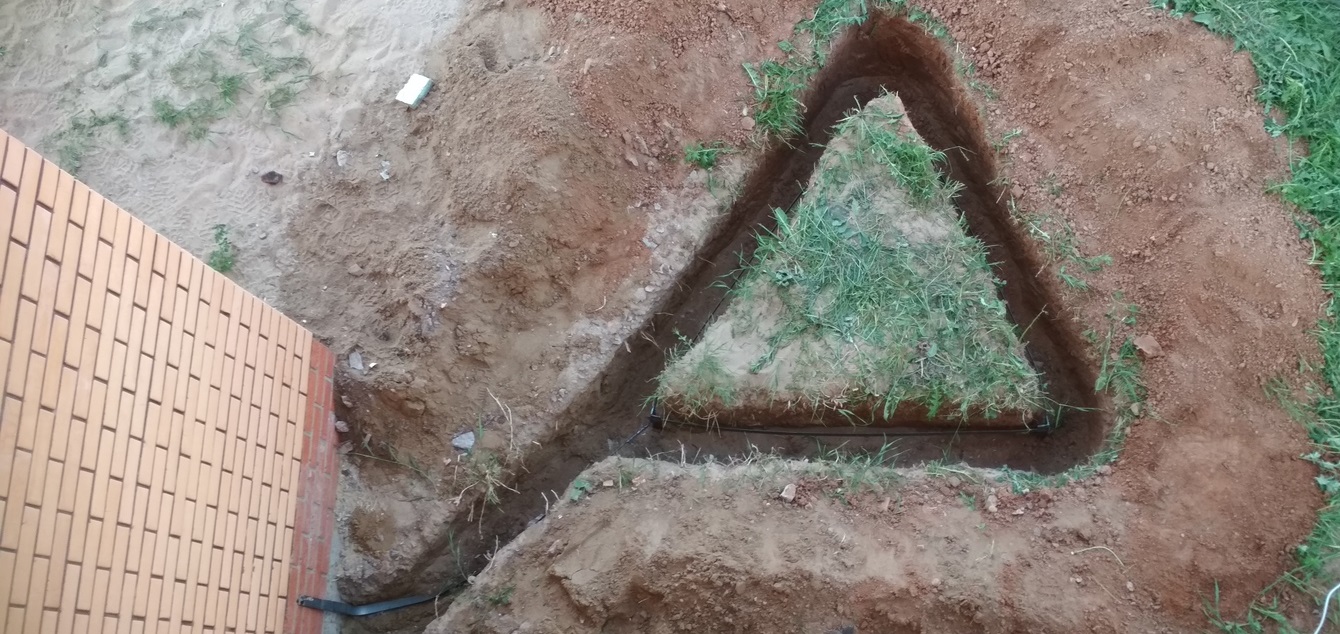
- take three steel corners measuring 40x40x5 mm and a length of 3 m;
- hammer a steel corner into each corner of the triangle so that at least 15 cm remains to the bottom;
- weld steel plates 4 mm wide and 40 mm long to the corners;
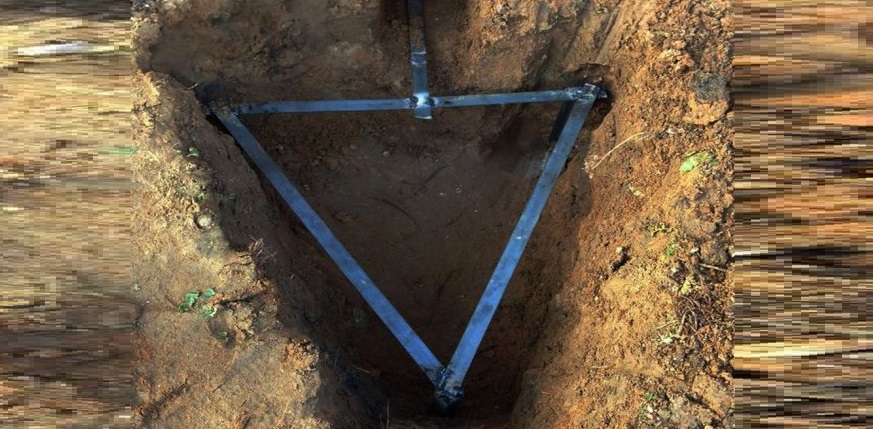
- weld a steel rod with a diameter of 10 cm to the resulting triangle (it will become a grounding conductor);
- Weld an M6 bolt to the second end of the rod (it is necessary for connection to the grounding bus in the panel);
- place the rod in the ditch;
- fill all holes with soil.
There is also an express grounding option that is suitable as a temporary measure. It is necessary to stretch a single-core copper wire with a cross-section of 2-2.5 mm from the electrical panel with a grounding bus. Afterwards, we make a groove to the socket allocated for the washing machine, lay a cable channel with a conductor into it, bring it into the socket box and connect it to the ground. Before manipulations, be sure to turn off the power to the room.
You can't ground it like that
Some “craftsmen” suggest establishing grounding even easier. Screw a bolt into the washer body, connect one end of the wire to it, and fasten the other to a water pipe or battery, cleaning the contact area. Yes, the method works - if there is a leak, the current will safely leave the machine. But there are several important “buts”: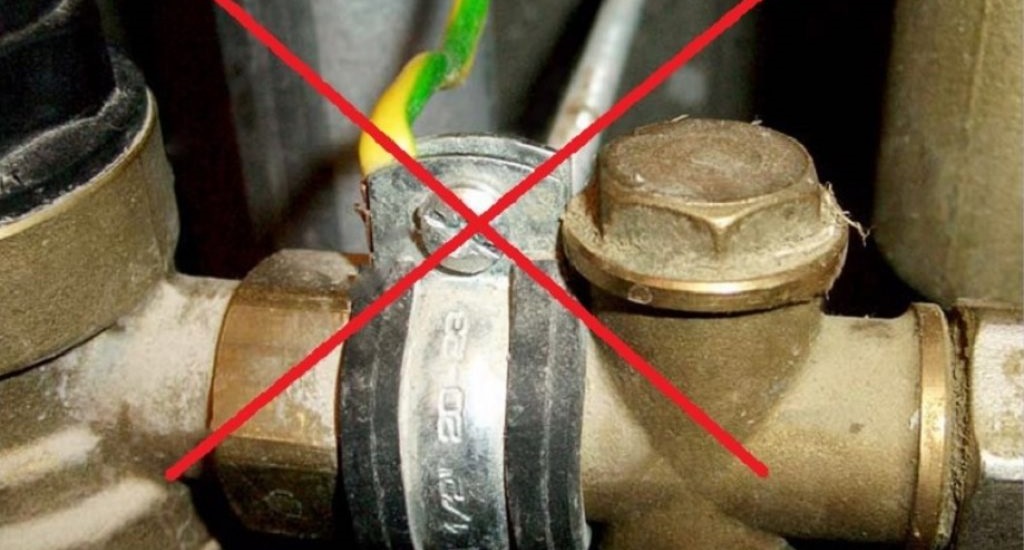
- this is unsafe - touching the pipe will be dangerous to life and health, and neighbors will also be affected;
- this is destructive - when current passes through the pipes, it negatively affects the riser, cracks appear, which can lead to a flood.
Let us repeat that the “plumbing version” of grounding is prohibited by electrical safety rules. It is better to call an electrician and establish a safe equalization.
Interesting:
Reader comments
- Share your opinion - leave a comment
Categories
Washing machine repair
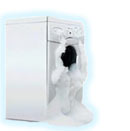

For buyers

For users

Dishwasher

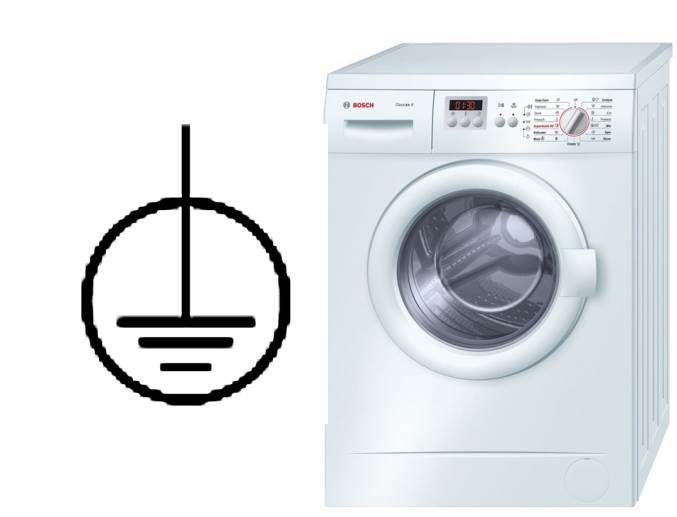
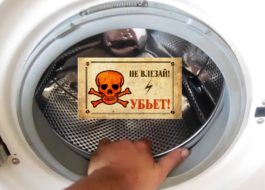
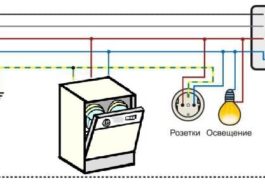
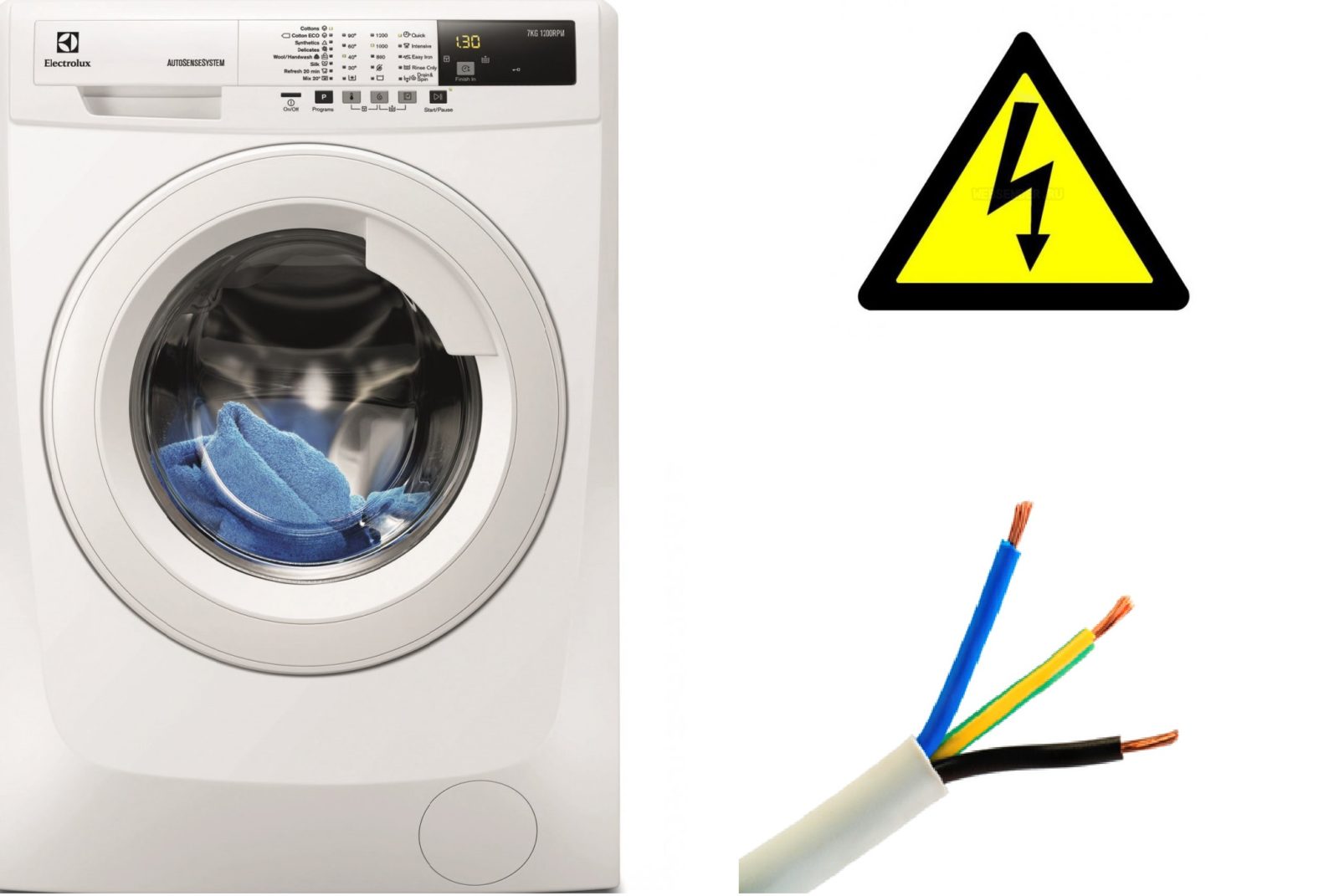
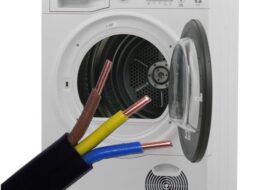

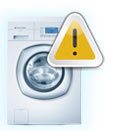
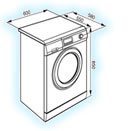
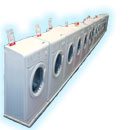




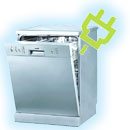


Add a comment